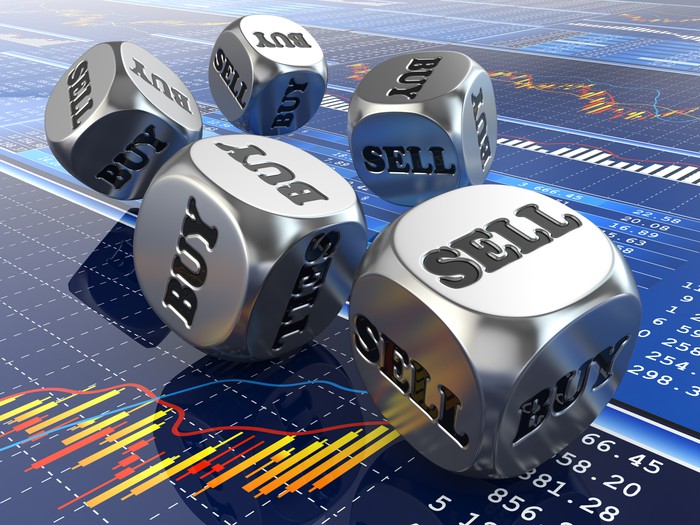After Anheuser-Busch InBev (BUD +0.56%) slashed its dividend in half in 2018, causing its stock to tumble, investors rushed in and bid up its shares again, so that within a year's time the stock traded well above where it stood before the cut was made.
Now that the brewer has once again halved its payout, its right to question whether investors will be as forgiving this time. There is good reason to think they will not.
While conserving cash during a pandemic is a smart move, Anheuser-Busch has burned the hand of investors twice in less than two years. Once bitten, twice shy, and the brewer's troubles that caused the first reduction in its payout remain. Arguably, they're even worse now.

Image source: Getty Images.
Brewing up trouble
Beer consumption in the U.S. is falling faster now, as changing consumer preferences have them more often than not reaching for a hard seltzer to quench their thirst than a beer.
Where seltzer sales continue to grow at triple-digit rates -- and during the coronavirus pandemic their growth is actually accelerating -- beer sales are still falling. The Brewers Association, the craft beer industry trade group, says where craft beer sales rose around 4% in 2019, overall beer sales were down 2%.
Undoubtedly, a good part of the segment's increase is due to craft brewers racing into the hard seltzer category, and leading craft brewer Boston Beer (SAM +1.85%) now produces more of its Truly seltzer brand than its flagship Samuel Adams beer. But the overall industry's decline is double what it was the year before.
Anheuser-Busch has its own line of hard seltzers, three in fact, and one of its craft brands, 10 Barrel Brewing, is preparing to launch yet another. But just as the proliferation of craft beer labels weakened the case for any one brewer to stand out, now there may be too much choice again.
A heavy load
Worse yet, the brewer's debt load is once again as bad as it was. Because the coronavirus pandemic forced it to draw down the entirety of its $9 billion credit line to ensure it had sufficient liquidity to make it through the crisis, its debt levels are now almost as great as they were before it began its debt-reduction efforts.
It sold its Australian brewing business to Japanese brewer Asahi Group for $11.3 billion and spun off its Budweiser Brewing Company APAC Asian business, raising about $5 billion, to help reduce the more than $100 billion debt load it was carrying following its 2016 acquisition of SABMiller, but the pandemic has largely undone those efforts.
Anheuser-Busch had expected its capital structure would be moving closer to what it considers its optimal levels by the end of 2020, but that is also not going to happen now. Net debt will remain over four times EBITDA, well beyond its preferred level of twice the amount.
A few bright spots
Of course, not everything is stacked against the brewer. Anehsuer-Busch's North America market, which is primarily the U.S., is not its only market, though it is its biggest, accounting for almost 30% of its $52 billion in annual revenue.
While production here declined 2.7% year-over-year to 108 million hectoliters, or about 92 million barrels, it has risen in many other markets, including the Middle Americas and South America, which are its second and third largest markets, respectively.
It also continues to own some of the world's biggest beer brands, such as Becks and Budweiser, which have grown volumes globally every year for the past decade.
Yet having cut its dividend again, income investors especially are going to be leery of moving back into the stock again.
No easy fix
No one could have predicted a pandemic upsetting all global economies at once, but many companies engaged in reckless financial pursuits, such as taking on debt simply to buyback their own stock, that now jeopardizes their ability to survive the crisis in the process.
Anheuser-Busch loaded up the liabilities side of its ledger pursuing growth by acquisition, which is also a risky business, and now needs to prove it can continue reducing its debt load. That will be difficult as countries have undertaken extreme measures trying to contain the pandemic, and companies find their own finances have all but been depleted.
The freewheeling deals that marked the past few years are done for now, and Anheuser-Busch InBev will be left to limp along as best it can on its own, which may not be very well.





